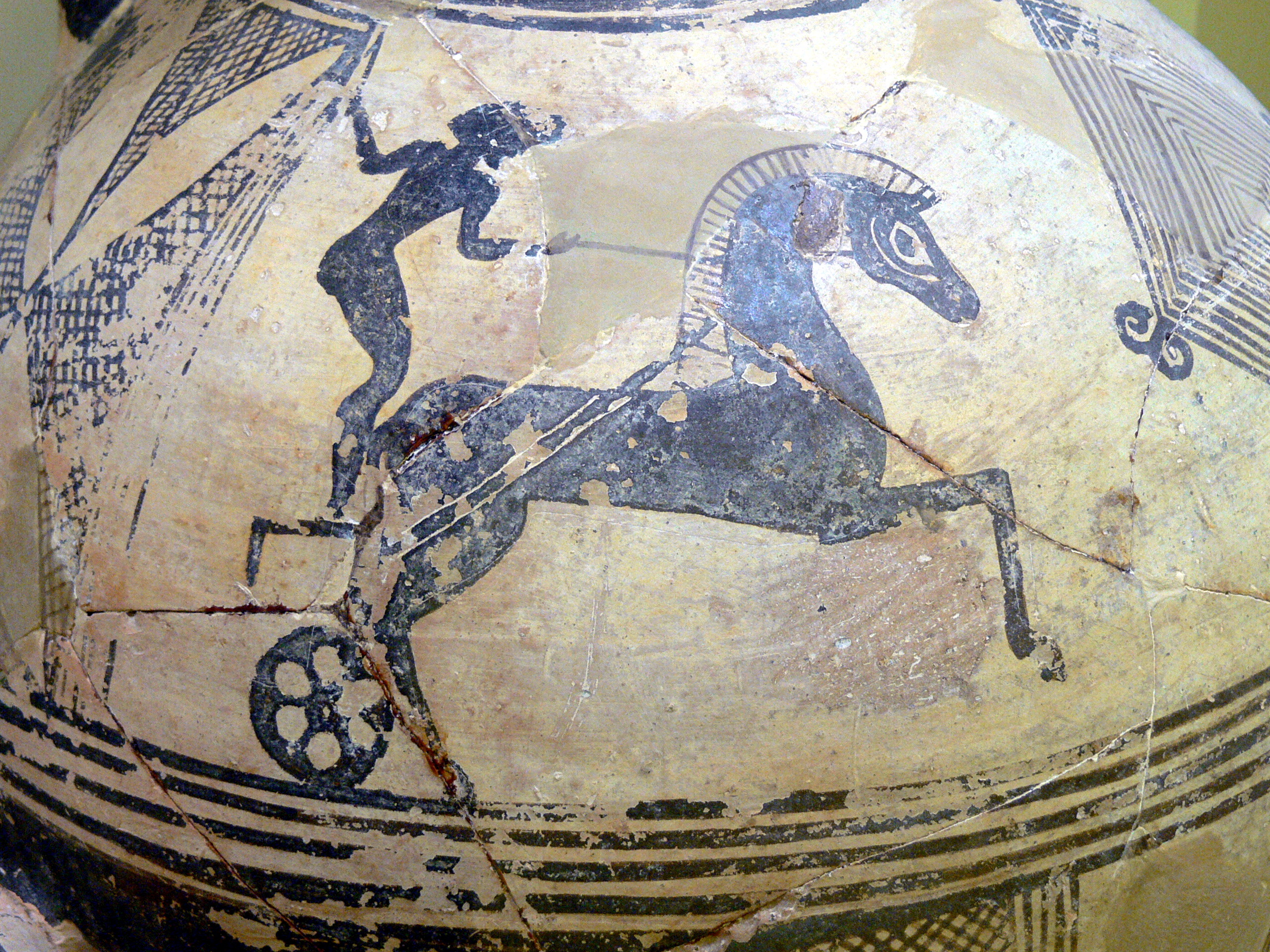Euryleonis on:
[Wikipedia]
[Google]
[Amazon]
 Euryleonis ( grc, Ευρυλεωνίς) (Flourished c. 370 BC,
Euryleonis ( grc, Ευρυλεωνίς) (Flourished c. 370 BC,
 Euryleonis ( grc, Ευρυλεωνίς) (Flourished c. 370 BC,
Euryleonis ( grc, Ευρυλεωνίς) (Flourished c. 370 BC, Sparta
Sparta ( Doric Greek: Σπάρτα, ''Spártā''; Attic Greek: Σπάρτη, ''Spártē'') was a prominent city-state in Laconia, in ancient Greece. In antiquity, the city-state was known as Lacedaemon (, ), while the name Sparta referr ...
, ancient Greece) was a celebrated woman, owner of a chariot
A chariot is a type of cart driven by a charioteer, usually using horses to provide rapid motive power. The oldest known chariots have been found in burials of the Sintashta culture in modern-day Chelyabinsk Oblast, Russia, dated to c. 2000&n ...
-winner of Olympic games.
Euryleonis was a horse breeder from Sparta whose horse chariot won the two horse chariot races of the Ancient Olympic Games
The ancient Olympic Games (Ὀλυμπιακοὶ ἀγῶνες; la, Olympia, neuter plural: "the Olympics") were a series of athletic competitions among representatives of city-states and were one of the Panhellenic Games of Ancient Greece ...
in 368 BC. She is sometimes referred to as a princess and wealthy woman.
Euryleonis was only the second female stephanite (crown-bearer) in the long Olympic history. Twenty-four years earlier, her predecessor, the Spartan princess Kyniska
Cynisca or Kyniska ( el, Κυνίσκα; born c. 442 BC) was a wealthy Spartan princess. She is famous for being the first woman to win at the Olympic Games, competing in the sport of chariot racing. Cynisca first entered the Olympics in 396 BC, ...
, had won the four horse race in 396 BCE and again in 392 BCE, the first ever woman to win at the Olympics.Women's History Month: Filling In the Blanks - Warren Women could not participate in Ancient Olympic games personally and even being a viewer was under strict prohibition for them, with punishment by death. The only possibility of participating and winning for a woman was to be an owner of a chariot and horses in chariot races, because just the owner, not the driver, recognized as a winner of races.
Bronze statue
According to the Greek travel writerPausanias Pausanias ( el, Παυσανίας) may refer to:
*Pausanias of Athens, lover of the poet Agathon and a character in Plato's ''Symposium''
*Pausanias the Regent, Spartan general and regent of the 5th century BC
* Pausanias of Sicily, physician of t ...
(flourished 143–176 CE), a statue of Euryleonis was erected at Sparta
Sparta ( Doric Greek: Σπάρτα, ''Spártā''; Attic Greek: Σπάρτη, ''Spártē'') was a prominent city-state in Laconia, in ancient Greece. In antiquity, the city-state was known as Lacedaemon (, ), while the name Sparta referr ...
c. 368 BCE It is one of few bronze statues that survives anywhere in the Greek world, and in writing there are no personal statues of athletic or military victors in Sparta
Sparta ( Doric Greek: Σπάρτα, ''Spártā''; Attic Greek: Σπάρτη, ''Spártē'') was a prominent city-state in Laconia, in ancient Greece. In antiquity, the city-state was known as Lacedaemon (, ), while the name Sparta referr ...
before the statue of Euryleonis. According to the Lacedaemonians
Sparta (Doric Greek: Σπάρτα, ''Spártā''; Attic Greek: Σπάρτη, ''Spártē'') was a prominent city-state in Laconia, in ancient Greece. In antiquity, the city-state was known as Lacedaemon (, ), while the name Sparta referred ...
, the statue of Euryleonis was located near the Skenôma, or tent. Another writer also described the statue as being near a tent, which has been suggested to be the small building mentioned by Thukydides
Thucydides (; grc, , }; BC) was an Athenian historian and general. His ''History of the Peloponnesian War'' recounts the fifth-century BC war between Sparta and Athens until the year 411 BC. Thucydides has been dubbed the father of " scientif ...
as the place where King Pausanias took refuge. It is also said that the statue stood in the temple of Aphrodite
Aphrodite ( ; grc-gre, Ἀφροδίτη, Aphrodítē; , , ) is an ancient Greek goddess associated with love, lust, beauty, pleasure, passion, and procreation. She was syncretized with the Roman goddess . Aphrodite's major symbols incl ...
in Sparta.
References
Bibliography
* * 4th-century BC Spartans 4th-century BC Greek women Ancient Olympic competitors Ancient Spartan women Sportswomen in antiquity {{AncientGreece-bio-stub